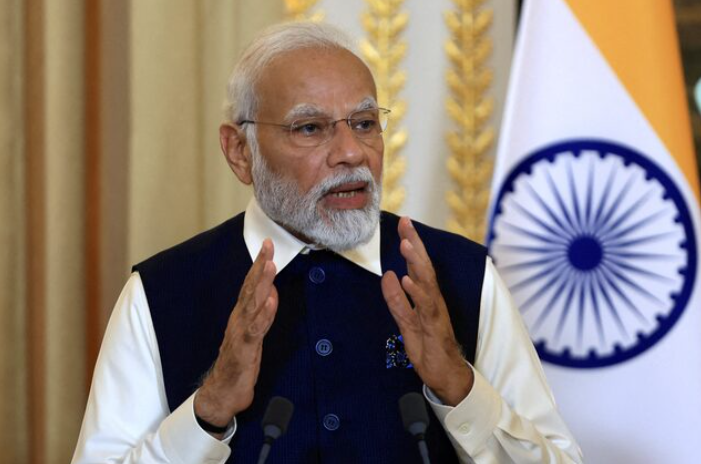The World and Modi 3.0 (GS Paper 2, IR)

Introduction:
- European political thinkers at a recent conference expressed deep concern about a looming new Cold War, with some even fearing a potential World War.
- There are whispers that suggest wealthy Europeans are relocating to perceived safe havens like Cambodia and Papua New Guinea.
Europe's War Fears: Historical Context
- Europe's Recent History Shapes Concerns: Europe's experience of two World Wars and the Cold War fuels anxieties about potential conflicts.
- Similarities Between Past and Present: They see parallels between past escalations and current tensions.
- Multiple smaller conflicts led to WWI.
- Strategic blunders by Germany and Japan (Pearl Harbor, Poland) escalated WWII.
- The Cold War threatened global destruction on numerous occasions (acknowledged by the Pentagon).
- Fears of a New Global War: Europe worries about a potential Cold War-like situation between the US and China escalating into a major conflict, potentially involving other nations.
Superpower Dissonance and Escalating Tensions
- Leaders Downplay Tensions: US and Chinese leaders deny a new Cold War, emphasizing cooperation. (Examples: Biden - "We are all better off if China does well"; Xi Jinping - "China doesn't want a cold war or a hot war with anyone")
- Global Competition Heats Up: Despite leader rhetoric, competition between superpowers intensifies.
- Resource Scramble: Competition for critical minerals intensifies across continents (Africa, Latin America).
- Strategic Partnerships: Race to build military and economic partnerships across Asia.
- Open Warfare: Existing conflicts in Europe (Ukraine) and Middle East (Gaza) add to global tension.
- Mounting Casualties and Escalation Threats:
- Ukraine war sees rising losses for both sides (Ukrainian forces, civilians, Israeli soldiers).
- Russian minister's accusation of NATO's potential use of tactical nukes raises fears of a wider conflict.
- Potential for Social Unrest:
- Gaza conflict sparks demonstrations in Europe and US.
- European leaders worry about pro-Palestinian movements leading to civil unrest in major cities.
Rising Tensions in the Indo-Pacific
- Taiwan's Stance Angers China: Taiwan's new president, Lai Ching Te, asserts Taiwan's independence from China, citing the country's constitution.
- China Threatens Taiwan: China criticizes Lai's statement, calling him a "dangerous separatist" and his speech a "downright confession of Taiwan independence."
- China Threatens Punishment: China threatens "counterattack" and "punishment" for Taiwan's pursuit of independence.
The UN's Challenges in Maintaining Peace
- UN's Origins: Established after WWII's devastation (75 million casualties) to promote global peace.
- Cold War's Impact: The UN's effectiveness was hampered during the Cold War just a few years later.
- Current State of the UN: The UN is seen as either biased or ineffective in addressing contemporary issues.
Need for De-Escalation
- Raging wars and rising tensions worldwide demand immediate attention.
- Another Cold War or a world war would be catastrophic.
- India's strategists in Modi 3.0 should prioritize de-escalation efforts.
- "Peace" isn't a recognized international stance.
- India's traditional neutrality, like that of Switzerland and Norway, offers a platform to collaborate with other Global South powers in finding solutions.
Conclusion:
- There was a time during the Cold War when India played an active role in the Non-Aligned Movement. But that was the non-alignment of the weak.
- Today’s India is strong and respected. It has the audacity to pursue “strategic autonomy” from a position of strength, not yielding before any big power.
- In the process, it has raised hopes in several quarters.


